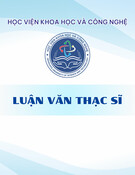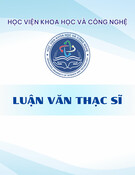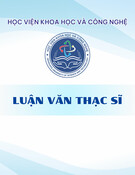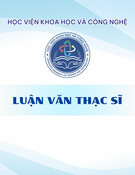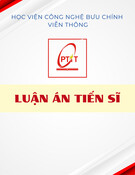
1
INTRODUCTION
1. The urgency of the thesis
In recent years, many countries have exploited bioactive substances
from marine organisms to serve researches to find drugs to treat dangerous
diseases such as cancer, hepatitis, and diseases infections and viruses. Up to
this point, a number of pharmaceuticals derived from marine organisms
have reached the users' hands, such as Cytarabine, Vidarabine, Eribulin,
Trabectedin ... To achieve this achievement, research institutes around the
world has screened the biological activity of millions of compounds from
marine species, and invested financial resources and time in pre-clinical and
clinical research phases for potential compounds.
With the advantage of owning a long coastline of over 3.260 km along
with many islands and bays, Vietnam has great potential for exploiting a
diverse marine resources, rich in both species composition and storage
amount. However, up to now, there are not many studies searching for
valuable active ingredients from Vietnamese marine organisms and limited
in the in vivo activity test step and research on drug-cell interaction
mechanisms cancer. The studies are currently in the early stages compared
with other countries in the region and far behind the advanced countries.
The reason is that there are still some difficulties such as: surveying and
collecting samples of marine organisms requires modern equipment,
compounds isolated from marine organisms often have very small
concentrations, complex structures impurities, some compounds that are
easy to decompose right in the analysis process. Therefore, an urgent
requirement for our country is to develop research to step by step systemize
the chemical composition and biological activity of marine species.
Genus Sinularia is one of the genus of soft corals that is interested in
research by many scientists around the world. Up to now, there have been
many studies on the chemical composition and biological activities of many






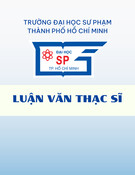

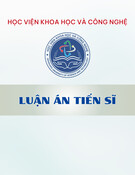
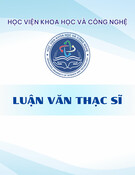
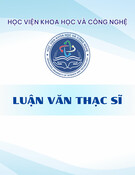
![Luận văn Thạc sĩ: Tổng hợp và đánh giá hoạt tính chống ung thư của hợp chất lai chứa khung tetrahydro-β-carboline và imidazo[1,5-a]pyridine](https://cdn.tailieu.vn/images/document/thumbnail/2025/20250807/kimphuong1001/135x160/50321754536913.jpg)
